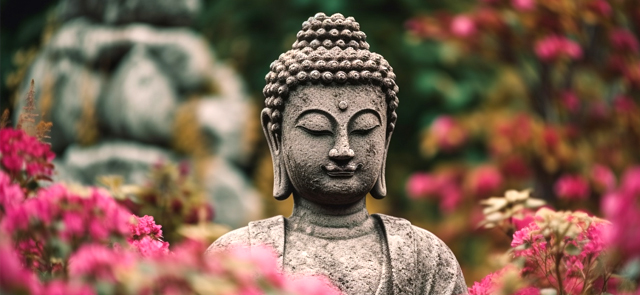The basic Mahayana doctrine encompasses the Bodhisattva ideal, the concept of emptiness, skillful means, the three bodies of the Buddha, Buddha nature, and the Perfection of Wisdom Sutras. These fundamental principles guide practitioners on the path of Mahayana Buddhism, inspiring them to cultivate compassion, wisdom, and the aspiration to attain enlightenment for the benefit of all beings. By embodying these teachings, individuals can navigate the path towards liberation, contributing to the alleviation of suffering and the realization of ultimate truth.
This document delves into the fundamental principles and doctrines of Mahayana Buddhism, providing insights into its core teachings and philosophies.
The Bodhisattva Ideal:
At the heart of Mahayana Buddhism lies the Bodhisattva ideal. Bodhisattvas are individuals who have dedicated themselves to attaining enlightenment not only for their own liberation but also for the liberation of all sentient beings. They embody the virtues of compassion, wisdom, and skillful means, vowing to work tirelessly for the benefit and welfare of others. The Bodhisattva path is characterized by the Six Perfections (Paramitas), which include generosity, moral conduct, patience, effort, meditation, and wisdom.
Emptiness (Sunyata):
Mahayana philosophy places great importance on the concept of emptiness. Emptiness refers to the lack of inherent existence in all phenomena. According to Mahayana teachings, all things are devoid of an independent, fixed, or permanent nature. Emptiness is not a state of nothingness but rather the recognition that all phenomena arise dependently and interdependently. Understanding emptiness is crucial for transcending suffering and delusion and cultivating wisdom.
Skillful Means (Upaya):
Skillful means, also known as expedient means or skillful means of liberation, is an essential aspect of Mahayana Buddhism. It refers to employing various skillful methods to help beings on their path to enlightenment. Bodhisattvas employ different expedient means according to the capacities, inclinations, and circumstances of individuals, aiming to guide them towards liberation. Skillful means may include teachings, practices, rituals, and compassionate actions tailored to the needs of others.
The Three Bodies of the Buddha:
Mahayana doctrine explains the three bodies (trikaya) of the Buddha: the Dharmakaya, Sambhogakaya, and Nirmanakaya. The Dharmakaya represents the ultimate nature of reality, the unmanifested and formless aspect of the Buddha. The Sambhogakaya is the celestial body of the Buddha, accessible to advanced Bodhisattvas and celestial beings. The Nirmanakaya is the physical or manifested body of the Buddha, through which the Buddha appears in the world to teach and guide sentient beings.
Buddha Nature:
Mahayana teachings assert that all sentient beings possess Buddha nature—the potential to attain enlightenment. It is an innate quality within every being, obscured by ignorance and defilements. Recognizing and actualizing one's Buddha nature is central to Mahayana practice. By cultivating wisdom and compassion, individuals can uncover their inherent Buddha nature and awaken to their true nature, transcending suffering and realizing their fullest potential.
The Perfection of Wisdom Sutras:
The Mahayana tradition places great importance on the Prajnaparamita Sutras or the Perfection of Wisdom Sutras. These texts emphasize the transcendent wisdom that realizes the nature of emptiness. They reveal the profound teachings on emptiness and the path to liberation, emphasizing the inseparability of wisdom and compassion. The Perfection of Wisdom Sutras have had a profound impact on Mahayana philosophy and have been studied and revered by practitioners throughout history.






